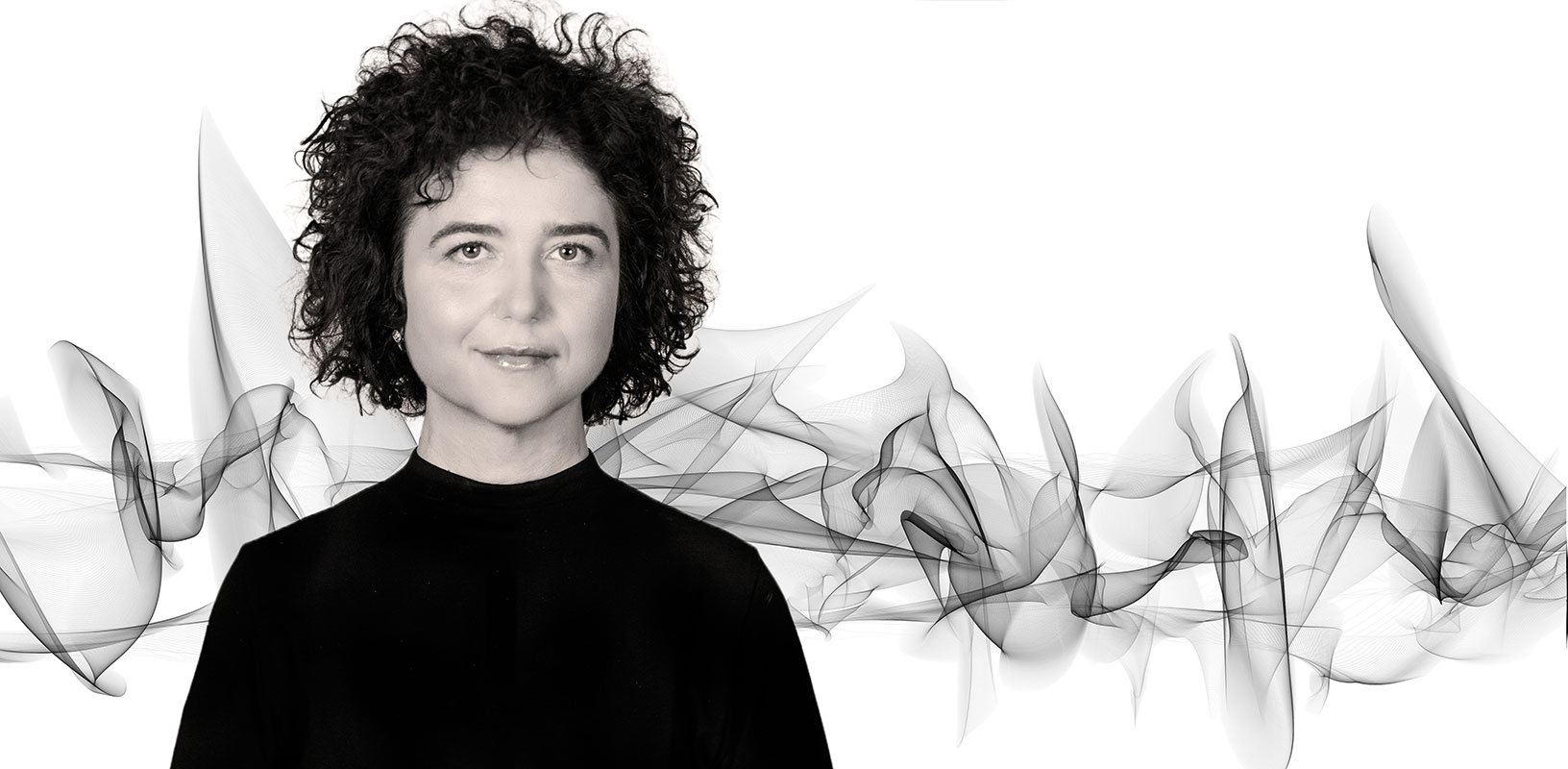Lera Auerbach festival: eight concerts in The Hague

The Hague plays host to a major focus from 15 to 22 October on the work of Lera Auerbach, who is celebrating her 50th birthday during the festival. Repertoire across eight concerts includes the Dutch premiere of Symphony No.5 ‘Paradise Lost’ with the Residentie Orchestra conducted by the composer, plus a new choral work for the Netherlands Chamber Choir.
Artistic polymath Lera Auerbach celebrates her 50th birthday on 21 October in the Netherlands, where she will be attending concerts and performing as conductor and pianist in a major festival in The Hague devoted to her music. The eight-concert event is presented by Festival Dag in de Branding in collaboration with the Amare concert hall, the Residentie Orchestra which performs the Dutch premiere of Auerbach’s Symphony No.5 ‘Paradise Lost’ under the baton of the composer, Korzo, New European Ensemble, the Royal Conservatory and the Netherlands Chamber Choir who are touring Auerbach’s new Arctic-inspired choral work Flights of the Angakok.
The two opening concerts on 15 and 18 October focus on chamber music, with the Delta Piano Trio and with Auerbach performing as pianist with violinist Julian Rachlin and cellist Ani Aznavoorian. Repertoire includes the composer’s Sonata No.3 for violin and piano and her Piano Trios Nos. 3 and 4, together with music by Prokofieff, Rachmaninoff and Beethoven.
Auerbach is also centre-stage as performer in the concert with the Residentie Orchestra on 20 October, both as pianist leading Mozart’s Piano Concerto No.20 from the keyboard, and as conductor on the rostrum for the Dutch premiere of Symphony No.5 ‘Paradise Lost’. The symphony extends her recent exploration of Miltonian and environmental themes, also witnessed in her orchestral work Eve’s Lament. After a funeral march about lost paradises, harp, chimes and vibraphone evoke an unreal, magical alternate world.
A pair of concerts on 21 October, the 50th birthday itself, are performed by Ensemble Klang and the combined forces of the New European Ensemble and the Ensemble Academy Royal Conservatoire. Repertoire includes Auerbach’s Arcanum for violin and piano, Dreammusik for cello and ensemble, and one of the composer’s most travelled pieces, Sogno di Stabat Mater, for violin, viola and chamber orchestra, which draws on Pergolesi’s poignant Passiontide cantata as its starting point. Popular with ensembles looking for contemporary works alongside Baroque repertoire, the work has been programmed this year by the Nordic Chamber Orchestra and Uppsala Chamber Orchestra in Sweden, the Jelgava Chamber Orchestra in Latvia and the Royal Northern Sinfonia and Britten Sinfonia at the BBC Proms in the UK.
Birthday events are concluded with Flights of the Angakok, Auerbach’s new choral work for the Netherlands Chamber Choir. This is their third collaboration in a triptych of large-scale works, following 72 Angels in 2016 and Goetia performed the following year with the Quatuor Daniel. The new work is premiered at the Muziekgegouw aan’t IJ in Amsterdam on 12 October by the Netherlands Chamber Choir and pianist Yang Yang Cai under the baton of the composer. It then travels to the festival in The Hague on 21 October, with further performances in Utrecht on 24 October and Enschede on 26 October. Inspired by the Inuit figure of the mythical shaman, Auerbach uses traditional folk music and contemporary sounds to draw attention to dramatic climate changes in the Arctic.
The final day ranges from solo violin with Joseph Puglia performing Auerbach’s Bach-inspired Par.ti.ta, to the Dutch premiere of Gallow Songs, setting whimsical texts by poet Christian Morgenstern for saxophone quartet and women’s choir, performed here by the Dutch National Women’s Choir and Berlage Saxophone Quartet under László Nemes. This concert also features one of Auerbach’s most personal works, her Seraphim Canticles written as a response when her New York apartment burnt down in 2009, destroying her beloved Steinway piano and her family’s library of scores and precious manuscripts. The seraphim are flaming Biblical angels, unflinching in their gaze but also purifying and offering rebirth. The composer describes the work, scored for instrumental sextet and performed by the New European Ensemble, as “an intense prayer, perhaps an unrelenting look at despair”.
Other Auerbach highlights in Europe this season include the German premiere of Symphony No.6 ‘Vessels of Light’ in Dresden (11 Nov), and first French performances of her cello concerto Diary of a Madman with Gautier Capuçon in Lyon and Paris (5/6 Jun).
> Further information on Work: Symphony No. 5 'Paradise Lost'
Photo: Raniero Tazzi
